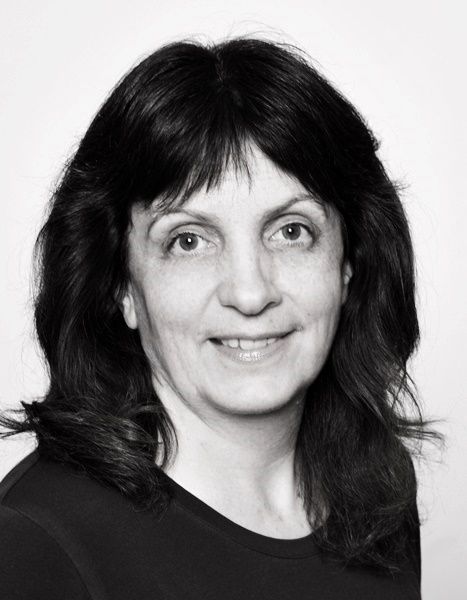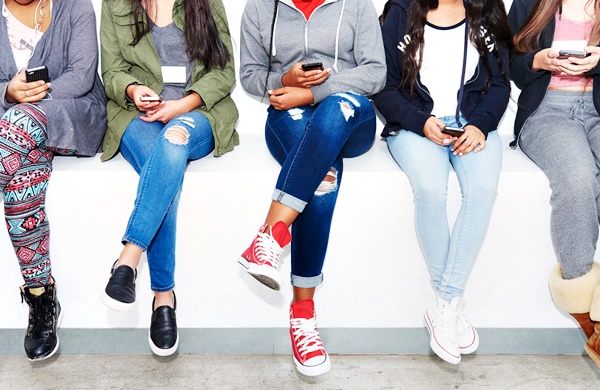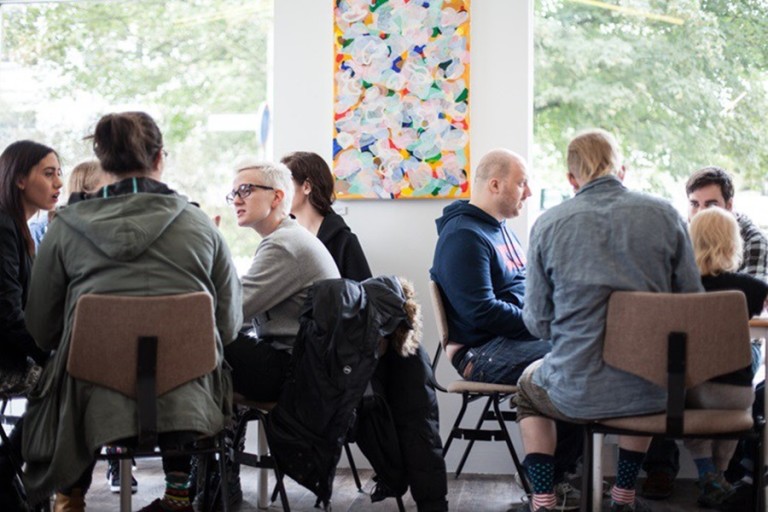A support group for parents and family members of queer youth has been founded. The group intends to meet at Samtökin ’78 (the national queer organisation), Suðurgata 3, Reykjavík, on the last Tuesday of every month.

“The aim of the group is very simple: it’s intended for parents and other family members of queer children and teenagers to meet as equals, talk and support one another,” explains Ólöf Berglind Halldórsdóttir, a parent and a social worker, who alongside Samtökin ’78 has just started a support group for parents and family members of queer children and teenagers.
When Ólöf’s son came out two years ago she felt that she needed a support group and when she talked to a few mothers of other queer children she sensed that they also needed such a group. “So I contacted Samtökin ’78 (the national queer organisation) and found out that there had once been a similar group there, but that it had not been active for a number of years. And when I brought up the idea of renewing the group Samtökin ’78 welcomed the idea. So we just went for it.”
Ólöf says that there are many reasons why such a support group is necessary. “I know that living in Iceland is a privilege when it comes to being queer. But queer children still face prejudice. I mean, if it’s so easy being queer in Iceland, why are they at a higher risk of being depressed, isolated, or even suicidal?
Obviously, this is not the case for everybody but statistics tell us that some of the children have a really hard time after coming out. There is clearly something telling them that they are not right somehow; even in a society that claims to be as open as Iceland does.
On top of that it also appears that kids are coming out at a younger age than before and when someone is younger than 18 she or he is still child. So as a parent you have other issues to deal with as well.”
Ólöf admits that she was startled when her own son came out at the age of fifteen. “I had no clue as to what it meant really. Of course I knew something about it, but it was just common knowledge. My first response was: “Are you sure?” and then, in an effort to try, I asked: “Aren’t you at least bi?” (Laughs.) But no, he was absolutely sure.
When your child tells you something like that everything changes. Your whole outlook on life alters. I couldn’t stop thinking: “What does this mean?” Then I realized I wanted to support him in every possible way. I’ll do anything for my children so I felt that I needed to educate myself and contacted Samtökin ’78. They have counselors for both the kids and the parents, which is simply amazing.
“If you want to support your child, it only makes you stronger if you get support from others who truly understand you.”
But I knew I wanted something more. I wanted to reach out to other parents, talk to them, and find out what they were going through. We often think we’re alone when dealing with things. But if you open up, talk to others in similar situations, then you find out that no, you’re not alone. And that is unbelievably helpful.”
The group has already had one informal meeting were all kinds of things were brought up. “Like how we can support our children,” says Ólöf. “How we can help make this group more visible and receive the same respect as everybody else. One of the things we want to fight for is that how society doesn’t take into account that kids can be something other than straight. By default, they are all supposed to be straight. But they aren’t. And then why is our sexual orientation so important? Why do I feel the need to let my family and friends know that my son is gay? I wouldn’t make a statement about him being straight, would I?

We are so fixed upon the “norm” but what is the norm, really? These are our children and as any other parents we want our children to have the same opportunities as other children, regardless of their sexual orientation.”
Ólöf points out that the parents don’t necessarily have anything else in common but simply the fact that their child is queer. “For me it doesn’t matter if someone else’s child is pan, poly or trans,” she answers when asked if just one support group for parents is enough though, considering that queer children face various and often different issues depending if they’re trans, intersex or gay for example. “If your kid is queer, you can come and talk to other parents about that. If you want to support your child, it only makes you stronger if you get support from others who truly understand you,” she says, but adds that within Samtökin ’78 there is also a special support group for parents of transchildren, managed by a counselor.
Ólöf says that group intends to meet at the facilities of Samtökin ’78 on the last Tuesday of every month at Suðurgata 3, Reykjavík at 7.30 PM. “We’re having a meeting next Tuesday, the 23rd of February and we invite parents and family members of queer kids and teenagers to come. We’ll have coffee and good talks – in full confidentiality.”
Main photo: taken at the facilities of Samtökin ’78 by Halla Þórlaug Óskarsdóttir.


